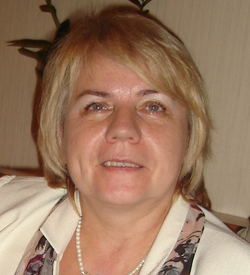Wkład państw Grupy Wyszehradzkiej w rozwój Europejskiej Sieci Pacjentów z Rzadkimi Chorobami Układu Nerwowego
 Spotkanie przedstawicieli z Czech, Słowacji, Węgier i Polski ma na celu nawiązanie ścisłej współpracy profesjonalistów prowadzących istniejące sieci pacjentów z rzadkimi chorobami neurologicznymi w Europie i na świecie. Budowanie sieci umożliwia prowadzenie badań i wykorzystywanie wyników w leczeniu takich osób. Gromadzona przez badaczy wiedza, pozwala budować centra doskonałości w zakresie badań, opieki i terapii.
Spotkanie przedstawicieli z Czech, Słowacji, Węgier i Polski ma na celu nawiązanie ścisłej współpracy profesjonalistów prowadzących istniejące sieci pacjentów z rzadkimi chorobami neurologicznymi w Europie i na świecie. Budowanie sieci umożliwia prowadzenie badań i wykorzystywanie wyników w leczeniu takich osób. Gromadzona przez badaczy wiedza, pozwala budować centra doskonałości w zakresie badań, opieki i terapii.
Dołączenie do sieci pacjentów z rzadkimi chorobami neurologicznymi z państw Grupy Wyszehradzkiej ma dla nich ogromne znaczenie. Współpraca specjalistów zajmujących się rzadkimi chorobami neurologicznymi oraz społecznych organizacji pacjentów daje ogromną możliwość poprawy standardów opieki i jakości leczenia pacjentów.
Pacjenci z rzadkimi schorzeniami neurologicznymi to zazwyczaj jednostkowe przypadki, 2 do 5 osób na 10 000 populacji. W odniesieniu do innych chorób wydaje się to być niewiele, właśnie dlatego potrzebna jest integracja w działaniu na rzecz osób cierpiących. Kierując się troską i dobrem pacjenta, międzynarodowa współpraca zapewni pacjentom z rzadkimi chorobami neurologicznymi z państw Grupy Wyszehradzkiej równe szanse w dostępie do leczenia, opieki i poprawy jakości świadczeń zdrowotnych.
Polskiemu Stowarzyszeniu Choroby Huntingtona zależy szczególnie na poprawieniu sytuacji chorych na rzadką pląsawicę Huntingtona.
Polska jest jednym z krajów Unii Europejskiej, które nie mają wypracowanej strategii dla pacjentów z rzadkimi chorobami neurologicznymi.
Wypracowano projekt Narodowego Planu dla Chorób Rzadkich ale nie został przyjęty i wdrożony. Od 2012 roku projekt wciąż jest analizowany i trwają prace badawcze.
Polskie Stowarzyszenie Choroby Huntingtona, wspierając pacjentów z chorobą Huntingtona, włącza się w międzynarodowe działania, aby ta szczególna grupa pacjentów miała większe możliwości i dostęp do diagnostyki i leczenia.
Danuta Lis, Polska
Visegrad countries contribution to European rare neurological disorders network: project description
 Doing research in rare diseases is always a challenge due to the fact that collection of a large enough cohort of patients to conduct significant studies was time consuming and often impossible to be done by one scientist at one study site. At a European level, the idea of networking in rare diseases research to achieve access to larger numbers of patients with rare diseases faster has been well developed. This idea was applied in several rare diseases and bring tremendous acceleration in rare diseases research. An example is Huntingtons disease where development of European Huntingtons Disease Network conducting REGISTRY cohort study results in logarithmic increase of research and published papers. Idea is to build a network of Study Sites interested in research in the same field. All Study Sites entered into the network collect patients research records and store these records together making records available for all interested scientists. Certainly stored records are anonymized.
Doing research in rare diseases is always a challenge due to the fact that collection of a large enough cohort of patients to conduct significant studies was time consuming and often impossible to be done by one scientist at one study site. At a European level, the idea of networking in rare diseases research to achieve access to larger numbers of patients with rare diseases faster has been well developed. This idea was applied in several rare diseases and bring tremendous acceleration in rare diseases research. An example is Huntingtons disease where development of European Huntingtons Disease Network conducting REGISTRY cohort study results in logarithmic increase of research and published papers. Idea is to build a network of Study Sites interested in research in the same field. All Study Sites entered into the network collect patients research records and store these records together making records available for all interested scientists. Certainly stored records are anonymized.
This idea gives a background for our efforts to build a network for hyperkinetic - not diagnosed movement disorders across Europe. It is a great opportunity for the Visegrad country partners to contribute and develop the network first in Europe and then in the World. Currently we have site candidates from Poland, Czech Republic, Slovakia and Hungary that collect data from patients with such diseases who would like to join the network. We have also a potential IT platform for such a cohort study.
As diseases that we would like to explore are often not fully diagnosed and usually have genetic background we intend to apply genome sequencing method as a research tool available for our network and here we have candidate as well. This is very important contribution of Visegrad countries to the rare neurological disorders network.
At the current stage it is very important to have a meeting together with all interested parties to exchange information and discuss all issues crucial to such network development and collaboration. It will also allow an estimation of the capability of particular Study Sites and achieve a clear plan for collaboration, development and potential financial support for the project.
Such a contribution of Visegrad countries to the new plan for European Reference Networks to cover groups of diseases (rare neurological disorders in this case) will allow the promotion of our countries in Europe and the World and lead to an improved standard of care for patients at all Centres. It will allow the development of civil society of researchers, MDs, patients and their families involved in this project for many years because diagnosis of diseases will follow our efforts to develop proper treatment and care for these patients. Media coverage planned should help to develop this idea and encourage other Study Sites and patients to join the network that will arise.
Daniel Zielonka, Polska
 POLSKIE STOWARZYSZENIE CHOROBY HUNTINGTONA
POLSKIE STOWARZYSZENIE CHOROBY HUNTINGTONA  MIĘDZYNARODOWY FUNDUSZ WYSZEHRADZKI
MIĘDZYNARODOWY FUNDUSZ WYSZEHRADZKI


 Spotkanie przedstawicieli z Czech, Słowacji, Węgier i Polski ma na celu nawiązanie ścisłej współpracy profesjonalistów prowadzących istniejące sieci pacjentów z rzadkimi chorobami neurologicznymi w Europie i na świecie. Budowanie sieci umożliwia prowadzenie badań i wykorzystywanie wyników w leczeniu takich osób. Gromadzona przez badaczy wiedza, pozwala budować centra doskonałości w zakresie badań, opieki i terapii.
Spotkanie przedstawicieli z Czech, Słowacji, Węgier i Polski ma na celu nawiązanie ścisłej współpracy profesjonalistów prowadzących istniejące sieci pacjentów z rzadkimi chorobami neurologicznymi w Europie i na świecie. Budowanie sieci umożliwia prowadzenie badań i wykorzystywanie wyników w leczeniu takich osób. Gromadzona przez badaczy wiedza, pozwala budować centra doskonałości w zakresie badań, opieki i terapii. Doing research in rare diseases is always a challenge due to the fact that collection of a large enough cohort of patients to conduct significant studies was time consuming and often impossible to be done by one scientist at one study site. At a European level, the idea of networking in rare diseases research to achieve access to larger numbers of patients with rare diseases faster has been well developed. This idea was applied in several rare diseases and bring tremendous acceleration in rare diseases research. An example is Huntingtons disease where development of European Huntingtons Disease Network conducting REGISTRY cohort study results in logarithmic increase of research and published papers. Idea is to build a network of Study Sites interested in research in the same field. All Study Sites entered into the network collect patients research records and store these records together making records available for all interested scientists. Certainly stored records are anonymized.
Doing research in rare diseases is always a challenge due to the fact that collection of a large enough cohort of patients to conduct significant studies was time consuming and often impossible to be done by one scientist at one study site. At a European level, the idea of networking in rare diseases research to achieve access to larger numbers of patients with rare diseases faster has been well developed. This idea was applied in several rare diseases and bring tremendous acceleration in rare diseases research. An example is Huntingtons disease where development of European Huntingtons Disease Network conducting REGISTRY cohort study results in logarithmic increase of research and published papers. Idea is to build a network of Study Sites interested in research in the same field. All Study Sites entered into the network collect patients research records and store these records together making records available for all interested scientists. Certainly stored records are anonymized.